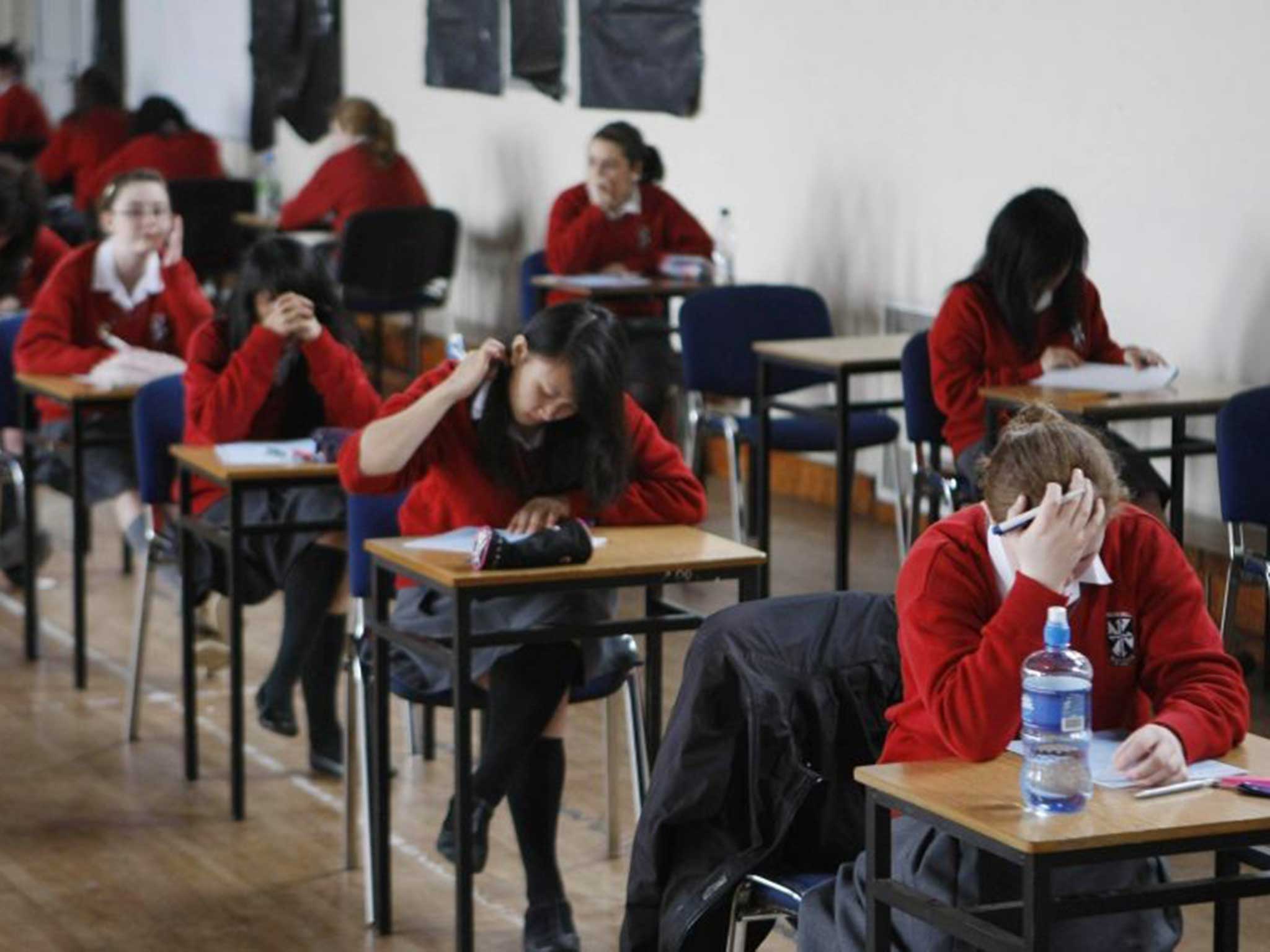Drop in take-up of foreign languages prompts concerns of UK's ability to trade globally
Many fear that gains in the subject following the Government’s introduction of the English Baccalaureate have been wiped out

A slump in the take-up of modern foreign languages has all but wiped out any gains in the subject following the Government’s introduction of the English Baccalaureate [EBacc].
Employers’ leaders have warned the drop would severely hamper the UK’s ability to compete in world trade.
“It is disappointing that modern language take-up continues to fall,” said John Longworth, director general of the British Chambers of Commerce. “It is no longer possible to presume that business will be done in English and we have to remember that our young people are competing for jobs in a global market place.”
The figures show French take-up was down 6.2 per cent to 157, 699 and German 9.8 per cent to 54, 037. Even Spanish - the language success story of the last decade - saw a fall with numbers dropping by 2.4 per cent to 90, 782.
In effect, they wipe out gains in the take-up of the subject two years ago - returning French and German almost to the levels they were at prior to the introduction of the Ebacc.
“The reality is that as this general decline continues, the UK risks falling behind on the world stage,” said Vicky Gough, schools adviser at the British Council. “Employers are crying out for more language skills.”
However, she said that the “main silver lining” was a rise in the take-up of other languages such as Mandarin Chinese (up 18 per cent) and Arabic (3.8 per cent).
There were increases in take-up for the community languages like Polish (up from 4, 498 candidates last year to 5,018) and Urdu (up from 3,976 to 4,253) - said by leading academic Professor Alan Smithers, director of the Centre for Education and Employment at Buckingham University, to be used by schools as a sure-fire method of improving exam results and league table rankings. They were ensuring success, he argued, by putting native speakers in for the exams.
However, ministers were taking heart from the fact that entries to the so-called STEM subjects [science, technology, engineering and maths] were up by more than 78,000 on the previous year.
“A generation of young people from all backgrounds are now securing the GCSEs that help give them the widest range of options later in life - whether looking for a rewarding job or a top apprenticeship,” said Education Secretary Nicky Morgan.
“This not only benefits the students involved, it means our work force for the future is properly trained to compete in a global economy.”
Languages case study
A 16-year-old was celebrating an A* in English literature last night despite only arriving in the UK two years ago hardly speaking a word of English.
Kristof Kokosi, a pupil at Ark Elvin Academy in Wembley, north-west London, arrived in the country just two years ago from Hungary without being able to speak or write more than a few words in English.
“I started GCSEs without much English knowledge and during those years I’ve been working extra hard,” he said.
“I started by memorising 30 to 40 words each day and practised speaking and writing because it wasn’t easy. In the second year I stayed at school until 7pm sometimes.”
Kristof said his teachers helped by staying behind with him to improve his learning - a move which has inspired him to take up teaching as a career himself.
“I would like to become maybe a maths teacher,” he said. “I like to help other people and I think the greatest asset you can give to a person is knowledge.”
He said his studies had helped to give him “a completely different perspective to the world, it’s very different in a positive way. I can see the world in another language basically.”
He gained A* grades in English literature, maths and geography, three more As, a B and two Cs.
He has already started getting in some good practice for his teaching career by providing tutoring to primary school pupils over the summer holidays.
Subscribe to Independent Premium to bookmark this article
Want to bookmark your favourite articles and stories to read or reference later? Start your Independent Premium subscription today.

Join our commenting forum
Join thought-provoking conversations, follow other Independent readers and see their replies